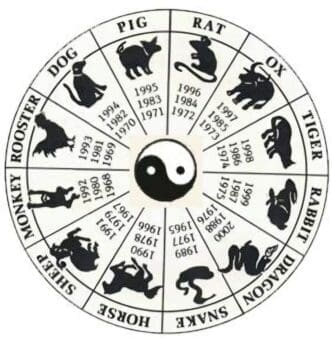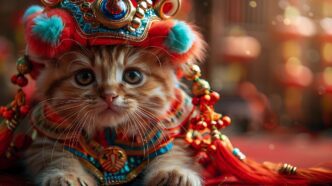Chinese horoscopes offer a unique perspective into the world of astrology with roots tracing back to the Han Dynasty, integrating concepts of yin and yang and lunar influences.
The essence of Chinese astrology lies in its differentiation from Western astrology, primarily through its year-long zodiac seasons. While Western astrology works on a four-week cycle, Chinese astrology dedicates an entire year to each zodiac sign. This zodiac cycle includes 12 animals: Rat, Ox, Tiger, Rabbit, Dragon, Snake, Horse, Goat, Monkey, Rooster, Dog, and Pig. Each of these animals is believed to embody distinct characteristics. For instance, the Snake is associated with sensuality and intelligence, whereas the Horse symbolizes easygoing and honest energy.
A crucial aspect of Chinese astrology is its dual cyclical nature: the elemental and zodiac cycles. The elemental cycle encompasses Wood, Fire, Earth, Metal, and Water, also known as the ‘ten heavenly stems.’ These elements interact with the zodiac cycle to define a specific year. For example, 2024 aligns with the Wood element and the Dragon sign, making it the ‘Wood Dragon’ year.
Unlike the Gregorian calendar that begins on January 1st, the Chinese New Year floats, starting anywhere from late January to early February. This variability means that individuals born in early January might mistakenly identify with the zodiac sign of the previous year unless they check specifically against the Chinese calendar. It highlights the dynamic and interconnected nature of time in Chinese astrology, urging individuals to verify their correct zodiac sign for accurate astrological insights.
Understanding one’s Chinese zodiac sign involves more than just knowing your birth year’s animal; it requires awareness of the elemental influences that accompany your sign. For instance, a ‘Wood Dragon’ has different traits and fortunes than a ‘Metal Dragon.’ This comprehensive approach emphasizes the importance of time and nature cycles in defining characteristics and predicting future events.
Chinese astrology’s appeal is apparent in the interest surrounding daily horoscopes and other related explorations. Whether through examining compatibility or exploring life forecasts, people continue to seek guidance from this ancient practice, looking to understand how elemental and zodiac influences shape their daily lives.
The rich tapestry of Chinese astrology, with its intricate cycles and profound influences, continues to captivate individuals worldwide. Its unique approach to understanding personal and cosmic dynamics allows a deeper exploration into the traits and forecasts that align with each zodiac sign.
Source: Astrology








